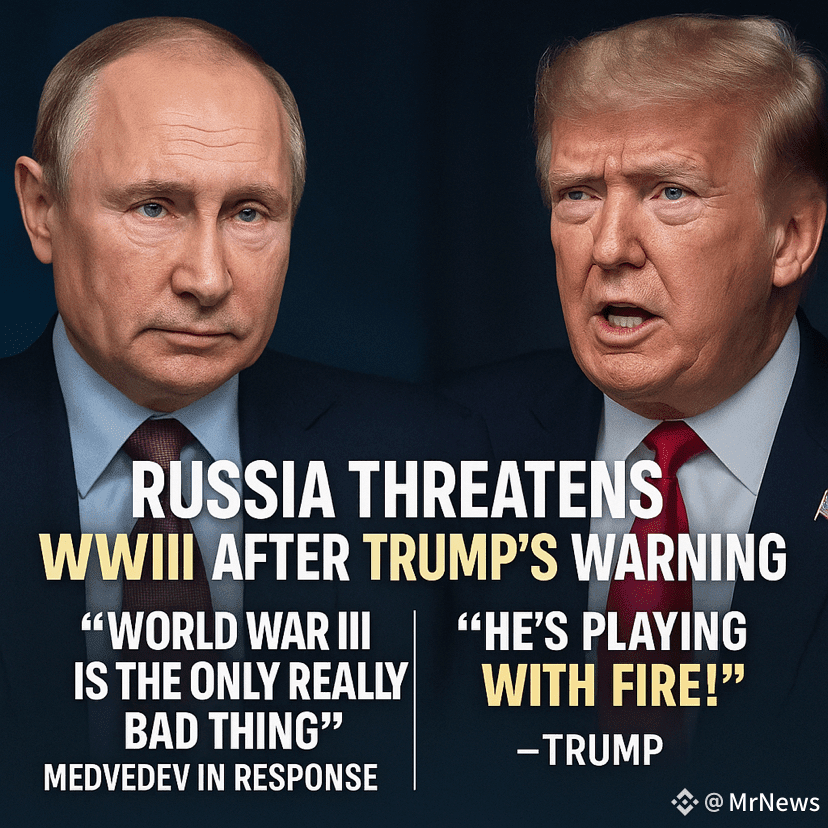Tensions between Russia and former U.S. President Donald Trump exploded into the open this week, with both sides trading threats and accusations on social media — raising fears of global conflict.
It started when Trump, in a post on Truth Social, accused Russian President Vladimir Putin of “playing with fire” by sending 50,000 troops toward Ukraine’s Sumy region, near the northern border. Ukraine claims it could signal a renewed offensive.
In response, former Russian president and current Security Council deputy chair Dmitry Medvedev fired back on X (formerly Twitter), stating that World War III is the “only REALLY BAD thing” for Russia — and made sure to tag Trump directly: “I hope Trump understands this!”

Trump’s original post read:
“What Vladimir Putin doesn’t realize is that if it weren’t for me, lots of really bad things would have already happened in Russia, and I mean REALLY BAD. He’s playing with fire.”
Medvedev’s reply was widely criticized. Keith Kellogg, a close Trump ally and envoy, called the rhetoric “reckless,” saying such talk “stokes fears of World War III — and that’s unworthy of a nuclear power.”
Russia’s Economic Engine Starts to Sputter
While tensions rise on the international stage, Russia’s domestic economic engine is showing early signs of stress.
According to a Financial Times analysis of online job listings, wage growth in Russia has significantly slowed. From late 2024 into early 2025, the average salary increase dropped from 4.2% to just 2.2%. Real income growth also declined — falling to 7.1% in early 2025, down from 8.3% the previous year.
This comes after two years of wartime spending fueled a mini economic boom. Defense industry jobs, generous government-backed mortgages, and higher salaries pushed incomes up — even as inflation climbed nearly 30% over three years.
“Russia’s economy is under strain, and the problems are piling up,” said economist Konstantin Nasonov. “But people still have more money than they did a few years ago — at least for now.”
New job offers are typically the first to reflect economic tightening, said Indeed’s Pawel Adrjan, who helped analyze the data. “Employers tend to reduce offers to new hires first — it’s an early signal of where the broader market is headed.”
But cracks are forming in public sentiment. Independent survey group Chronicles found that 40% of Russians say their financial situation is getting worse, and only 20% believe it’s improving. Co-founder Alexei Minyailo noted:
“As financial conditions deteriorate, support for the war becomes more fragile.”
In short, while Russia flexes its military muscle abroad and trades harsh words with the West, its economic resilience may be quietly eroding at home. With global tensions running high and both sides unwilling to back down, the next moves from Trump, Putin, or Medvedev could carry serious consequences — far beyond the battlefield.
#TrumpMediaBitcoinTreasury #russia #ww3 #America #trumpvsputin
